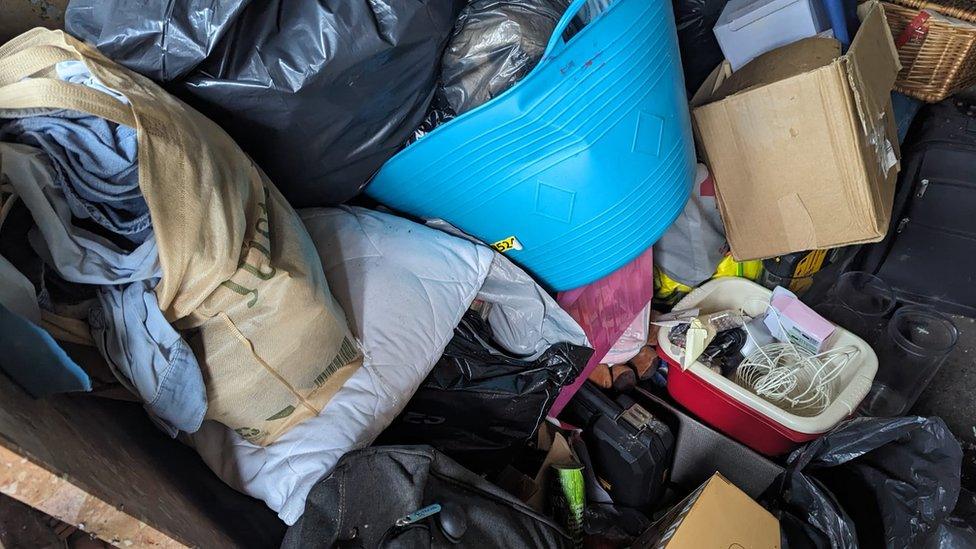'I just kept collecting, collecting, collecting'
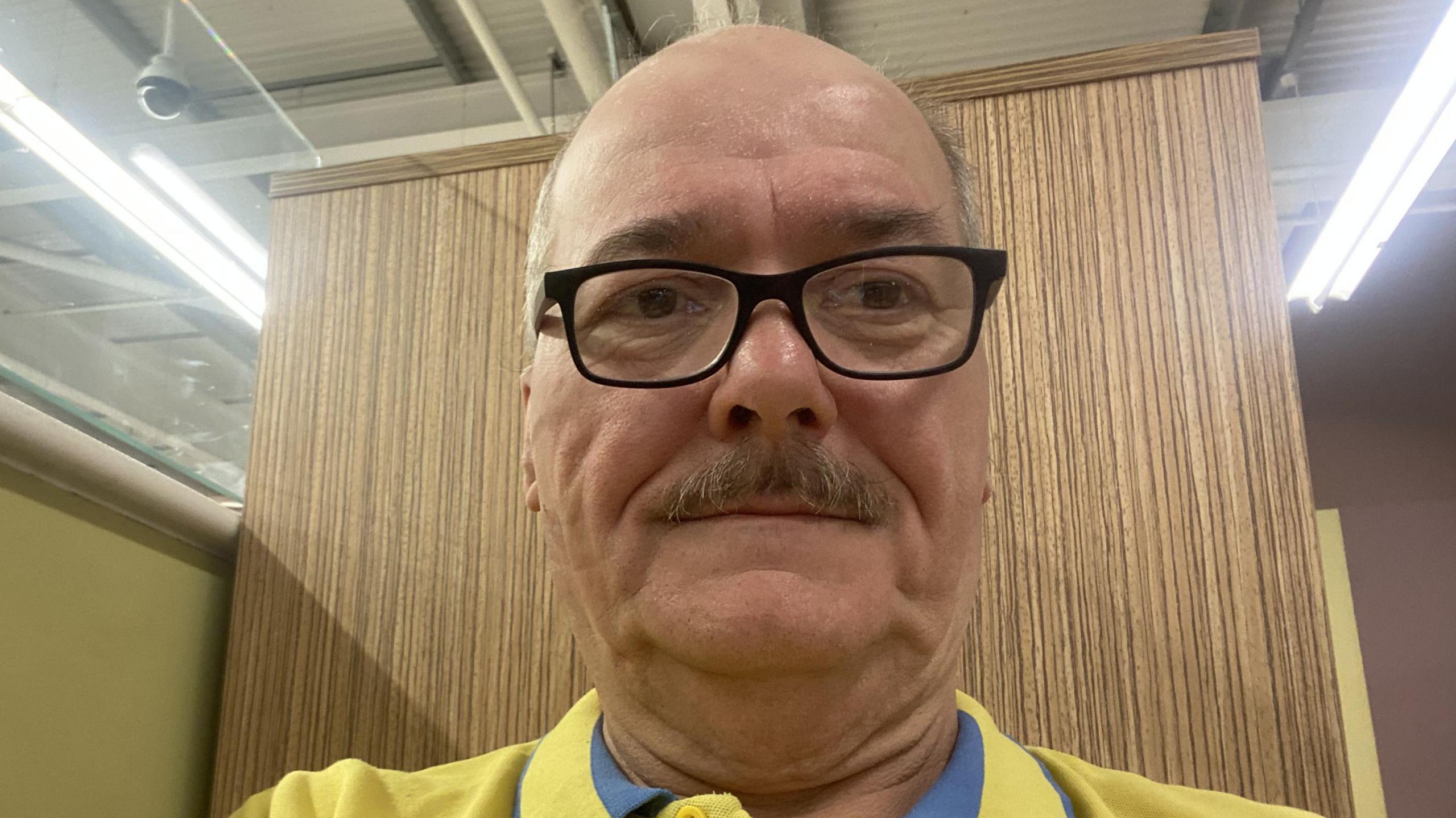
Paul Salt sought help from his local council when his hoarding got "out of control"
- Published
“You literally name it and I would hoard it," admits Paul Salt, who says his hoarding got to the point where he was finding it hard to move around his Woking home of 33 years.
"I was saying: ‘Oh, that will come in handy, I'll use that’. Then I realised I couldn't use it.”
Mr Salt, 64, said it got to the stage where he had to made “little alleyways” to get from one room to the other.
He eventually decided to seek help when he thought it was “out of control”.
Mr Salt believes living alone was part of the reason his hoarding got out of hand.
“I just kept collecting, collecting, collecting, and nobody was ever there to help clear it all,” he said.
The help he needed - which he describes as a “godsend” - came in the form of local council officer Lee Jolliffe.
Mr Jolliffe, an experienced health and social care practitioner, has been a dedicated hoarding and de-cluttering officer with Woking Borough Council since January 2023.
Together, he and Mr Salt went room by room to tackle items which had been collected over 10 years' of hoarding.
Mr Jolliffe said his approach is to work towards a shared goal, building relationships and giving advice.
“People think I’m there to clear their house and get rid of all their possessions,” he said.
“That’s not the case. I will make it as safe as possible.”
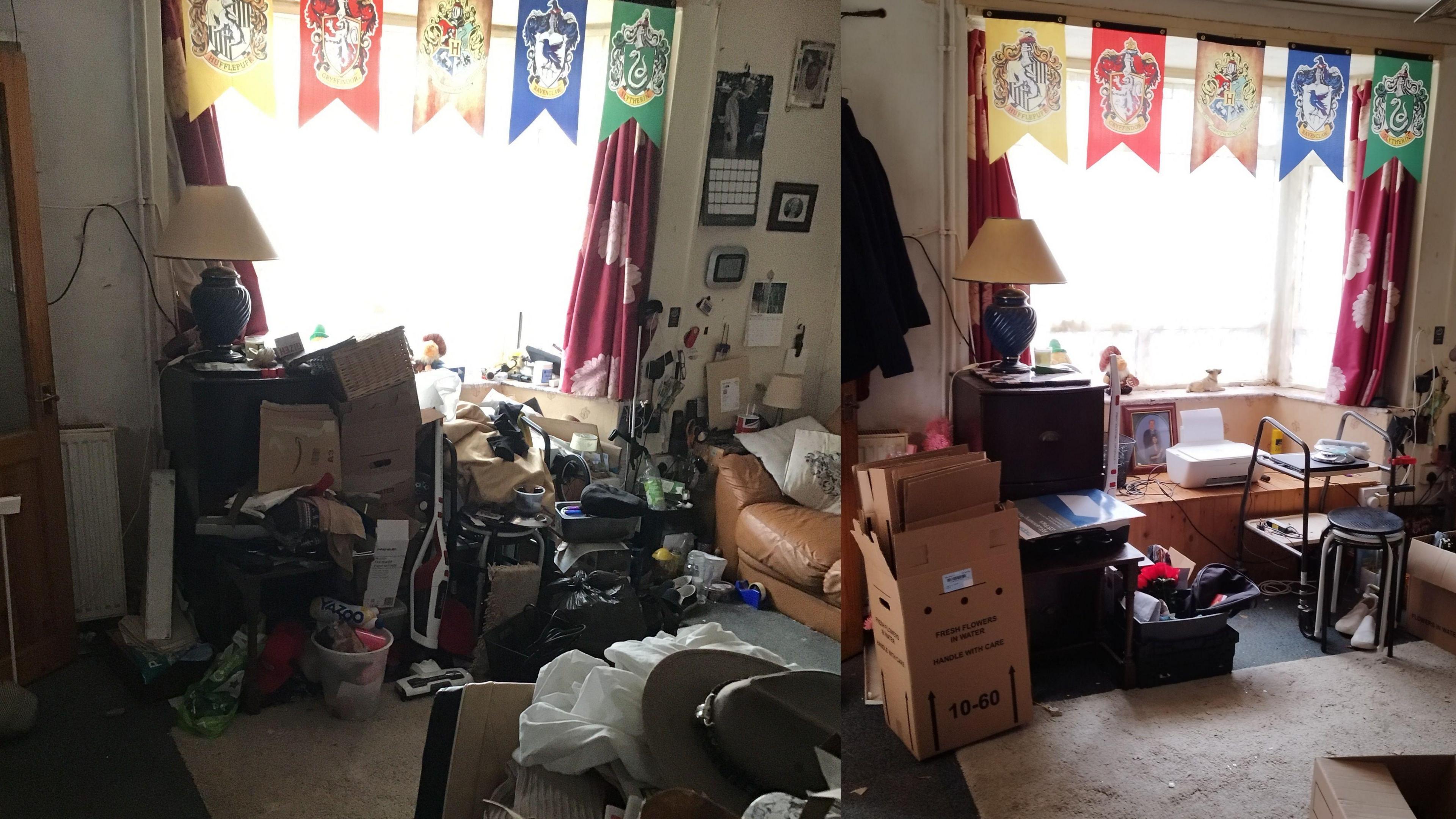
Mr Salt described the council's help to clear his home as a "godsend"
If you have been affected by any of the issues raised in this story, you can access more help and support via the BBC Action Line
Mr Salt said he never felt "pressured" during the process and in the end was “comfortable” about getting rid of his stuff.
He now finds he does not want to be out of his house as much as he did before.
He said: “I'm enjoying the space that I'm finding in the house.”
He says he has also managed to shake off the “skip man” nickname his friends had given him, because he used to be unable to walk past a skip without looking in it.
Having changed his approach to acquiring things, he says: “If I really need it, I’ll go buy it.”
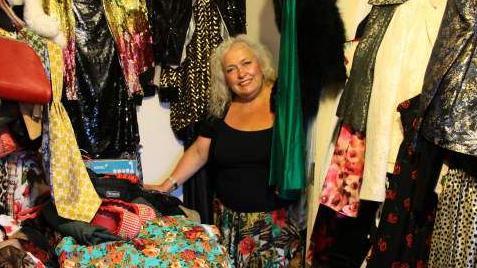
Mandi Simms said hoarding was her way of coping with stress
Mandi Simms has opened a pop-up shop in Walton-on-Thames to get rid of the clothes, shoes and more that she was hoarding.
For her, hoarding was a way of coping with stress.
She said: “I was gradually losing control of my once-organised life, but hadn't realised it.
“This continued as a repetitive pattern, often being triggered after another trauma – a loss of a parent, lover, or difficult situation and so it continued.”
'Seek help'
She hopes that in talking about her own experience she can raise awareness of hoarding and the mental health issues surrounding it, encouraging others to seek help.
Having acknowledged that she had a problem, Ms Simms saw her GP, who suggested a local hoarding support group, run by the Mary Frances Trust.
She said: “It really is ok to talk about it and seek help, providing you acknowledge you have a problem and want to change.”
Patrick Wolter is the chief executive of the Mary Frances Trust, which offers mental wellbeing support to adults across Surrey and support for people who are hoarding.
He said the process of helping someone had to start with them admitting they may have a problem, then doing something about it.
Trying to stop acquiring new things, came next he said, such as by not saving card details in an internet browser, which can make online shopping easier.
“To break that first guilt and shame and ask for help is the first step,” he added.
Mr Jolliffe, who works with the fire service to highlight cases where people may be hoarding paper or other items that could be a fire risk, external, said each case is different.
“I can’t say what we will do until we look at it,” he said. “It has to be led by the individual, it’s their house and their choice.”
Follow BBC Surrey on Facebook, external, and on X, external. Send your story ideas to southeasttoday@bbc.co.uk, external or WhatsApp us on 08081 002250.
Related topics
Related Internet Links
- Published26 April 2024
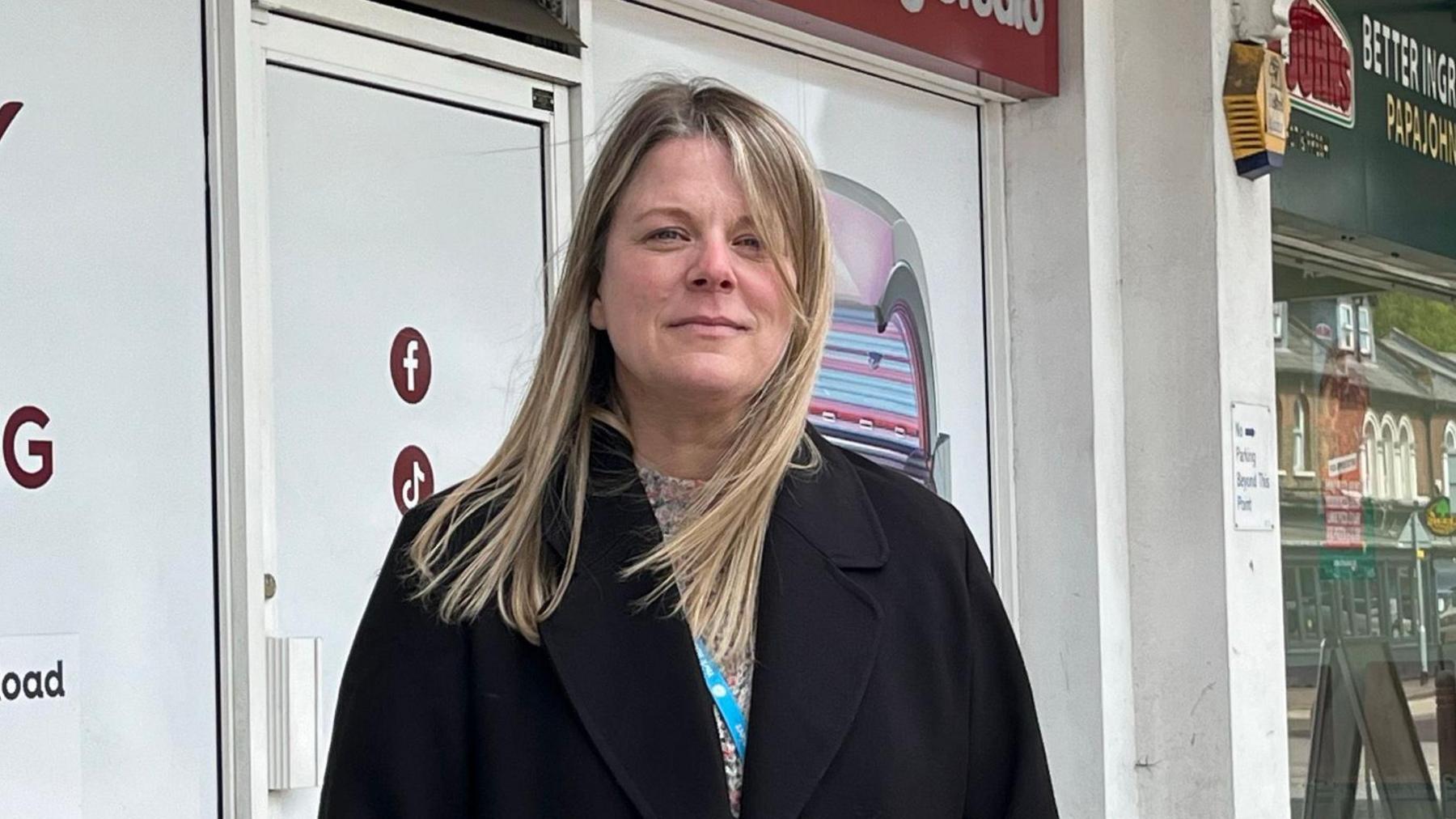
- Published29 October 2022
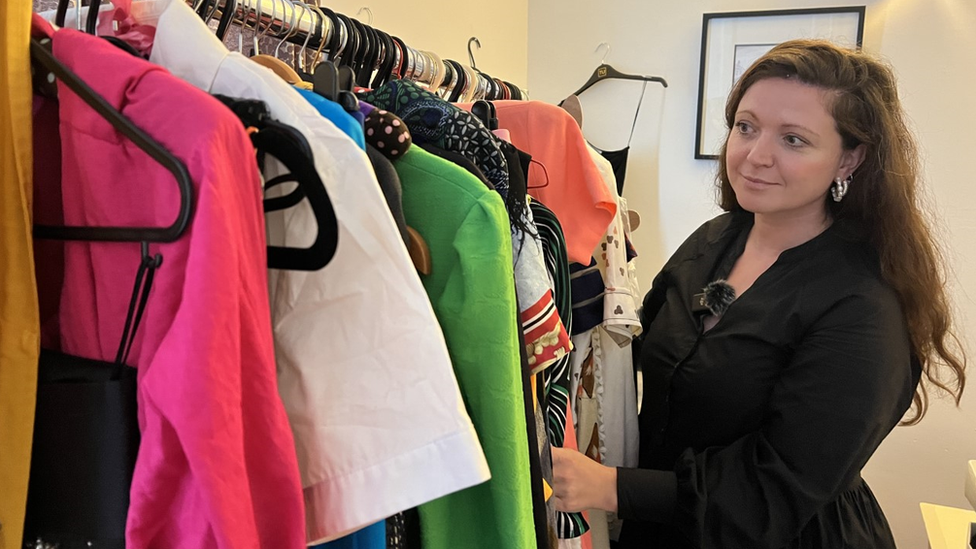
- Published11 April 2024
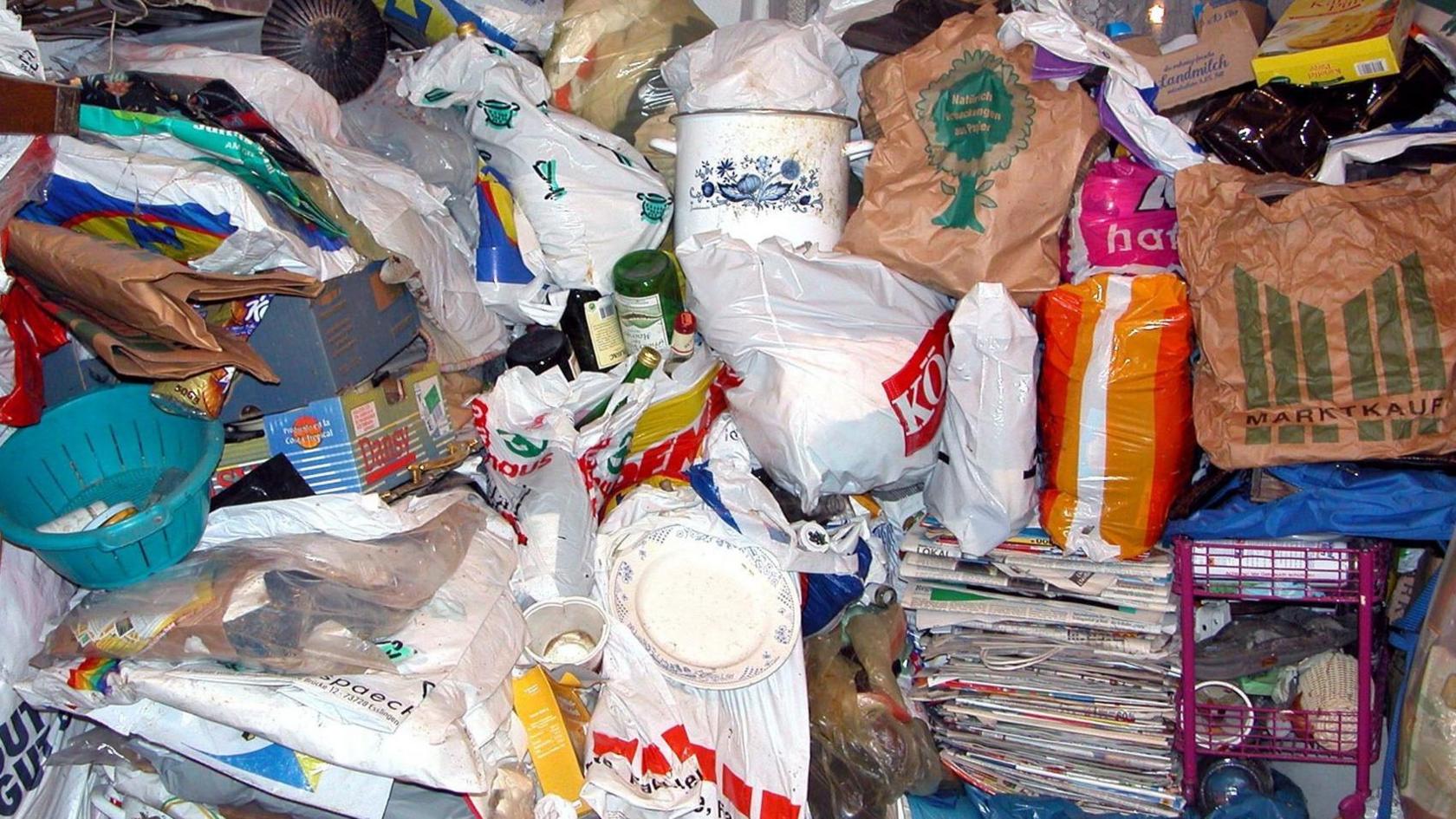
- Published29 December 2023
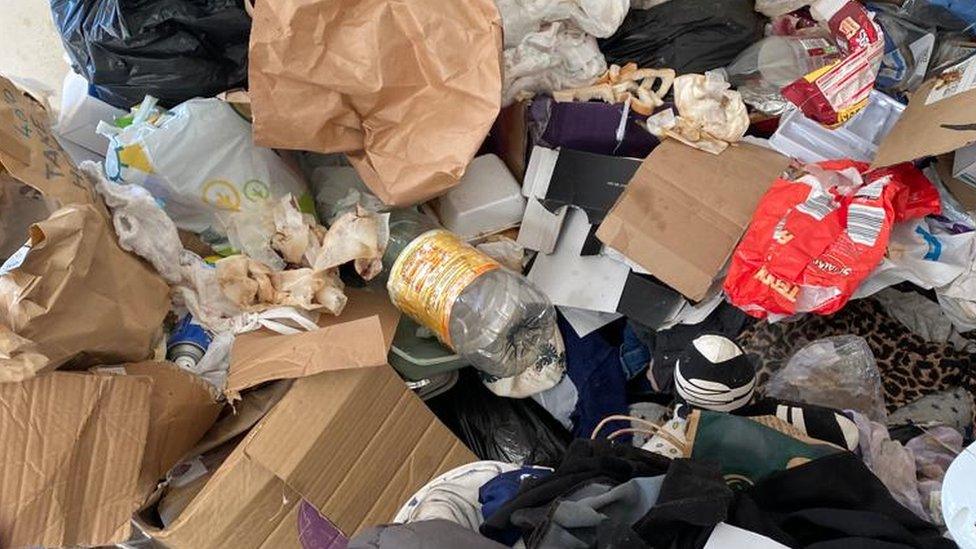
- Published26 January 2024
